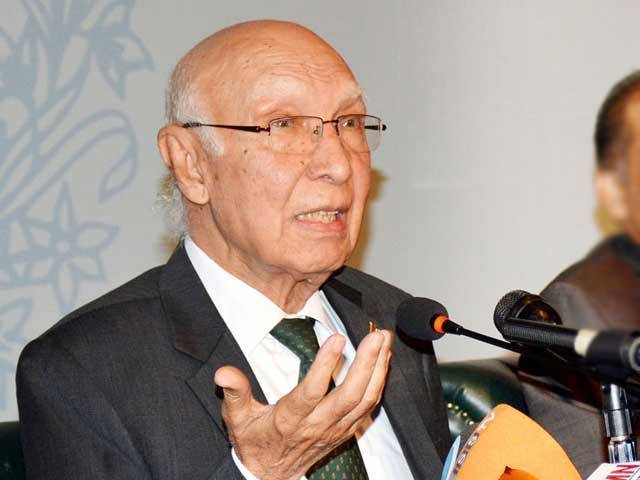Asia-Europe Meeting Summit: Pakistan emphasis regional connectivity
Shares

ISLAMABAD: Advisor to the Prime Minister on Foreign Affairs Sartaj Aziz says addressing root causes of longstanding disputes that spread desperation and lead to violent reactions is imperative to overcome the complex global challenges.
Speaking at the Plenary Session of the 11th Asia-Europe Meeting Summit in Mongolia today, he said that recent tragic events in Jammu and Kashmir and Palestine are example of such failures.
He said many of the problems we face today are the indirect consequences of past policies or initiatives that were launched for certain objectives that are no longer important.
The Advisor said that in the past 20 years the world has become increasingly interdependent and many global multilateral and regional institutions have been striving hard to promote peace, ensure political stability and enhance human progress in all parts of the world. He said these efforts are today overshadowed by a large number of geo political conflicts, growing threats of violent extremism, forcible displacement of 60 million people, accelerated environmental degradation and rising inequality.
Sartaj Aziz welcomed China's proposal of establishing a Working Group on Connectivity. He said the concept of connectivity should not be confined to building roads, rails, air links or ports. It should include soft connectivity including sharing of ideas, knowledge, information technology, culture, and unified action to tackle issues of common concerns.
He said Pakistan is committed to enhancing regional connectivity through improvements in its transport, trade logistics and energy sectors. The flagship project in this regard is China Pakistan Economic Corridor linking Western China to Pakistani ports on the Arabian Sea. He said it is a potential game changer for the region as it could be a catalyst for economic activity and integration with Central Asia, South Asia and the Middle East.
Sartaj Aziz said that Energy connectivity to integrate surplus energy resources of Central Asia with large energy markets of South Asia is also on our agenda. Two projects, Turkmenistan-Afghanistan-Pakistan-India gas pipeline and Central Asia South Asia electricity project are already under implementation. TAPI will bring natural gas from Turkmenistan to Afghanistan, Pakistan and India.
